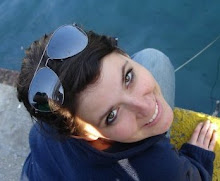
This contrast between vitality and apathy is something that has been on my mind for several days, and not just because of the ever-making and breaking of Bermuda love triangles out on the quad. It has been on my mind because of a story I read about in a book called “Life Lessons,” a deep examination of the realities of life and things that are worth valuing as we journey through our days. The story is about someone who never made it as far as any of my students here. He is someone who never made it as far as you or I. And yet, I’m here to say that something about this story I am about to give is bound to tell you and this boy with his bike have possibly changed more lives and hearts than I have in all my 23 years. The story is told by his doctor who treated him for cancer for six years:
“Some years ago, I knew a young boy who was eager to spread love and find life, even though he was at the end of his. He had had cancer for six of his nine years. In the hospital, I took one look at him and knew he was finished fighting. He had just had it. He had accepted the reality of his death. I stopped by to say good-bye the day he was going home. To my surprise, he asked me to go home with him. When I tried to sneak a peak at my watch, he assured me that it would not take long. And so we drove into his driveway and parked. He told his father to take down his bicycle, which had been hanging in the garage, unused, for three years. His biggest dream was to ride around the block once--he had never been able to do that. He asked his father to put the training wheels on his bicycle. That takes a lot of courage for a little boy to do: it’s humiliating to be seen with training wheels when your peers are popping wheelies and performing tricks with their bikes. With tears in his eyes, the father did so.
Then the boy looked at me and said, “Your job is to hold my mom back.”
You know how moms are, they want to protect you all the time. She wanted to hold him up all the way around the block but that would cheat him out of his great victory. His mother understood. She knew that one of the last things she could do for her son was to refrain, out of love, from hovering over him as he undertook his last, greatest challenge.
We waited as he rode off. It seemed like an eternity. Then he came around the corner, barely able to balance. He was terribly drawn and pale. Nobody thought he could ride a bike. But he rode up to us beaming. Then he had his father take off the training wheels and we carried the bike, and him, upstairs. “When my brother comes home from school, would you send him in?” he asked.
Two weeks later the little brother, a first-grader, told us that his brother had given him the bicycle as a birthday present, since he knew he would not be around for the birthday. With not much time or energy left, this brave boy had lived out his final dream, riding his bike around the corner and passing it on to his younger sibling."
The thing I love about this story is that There is unquenched life in all of us, and this anonymous, nine-year-old boy had a big bit of life to live in a ride around a block. A conquering moment, an epic moment, and for him, a victorious one.
In some ways, my recent trip to Africa was my ride around the block. It was humbling and scary to have to wait and get the ducks in a row for visas and funds, etc. It was tempting to fear that I was doing the wrong thing, or that doing something for myself was selfish or wrong. But there was also a fiber of my soul that felt just like this boy, that I couldn’t go on in my life without having triumphed over that great, big block no matter how hard it would be to pedal all the way around it and keep your balance at the same time. Except, my block in life came just a few years later than his, and his life has already moved on to what lies beyond this world.
Here’s to Africa, riding bikes, and passing on the giants of our life to younger ones who look up to us, hoping to be something like us and conquering the same hills we have ridden over in great and glorious triumph.



